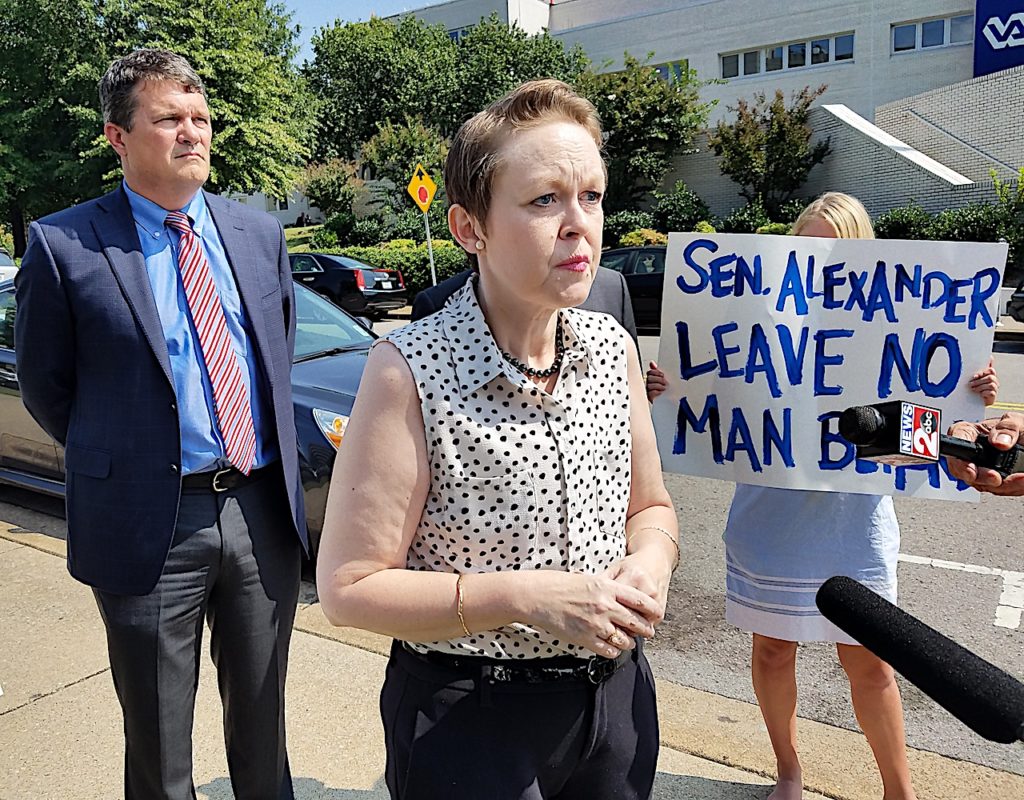
Tennessee Gov. Bill Haslam is cheering the latest effort to repeal the Affordable Care Act, while opponents of the measure are scrambling to derail it before the legislation can pass the U.S. Senate.
Haslam joined 14 other Republican governors Wednesday in signing a letter praising a plan to repeal the ACA’s individual mandate, to do away with the requirement that individuals purchase insurance and to convert Medicaid to a system of so-called block grants to the states.
In an appearance in Chattanooga, Haslam called the proposal, known as Graham-Cassidy, a “home run for Tennessee” because the state will receive more money than it currently does for Medicaid.
“It’s flat out good for Tennessee,” the
Times Free Press quotes him as telling the Chattanooga Area Convention and Visitors Bureau.
But opponents say that’s not entirely true, and they cite
a study by the health care research firm Avalere. It says that Tennessee is one of 16 states that would initially see a boost to Medicaid — $3 billion by 2026 — but it would start to see decreases immediately afterward. By 2036, planned cuts to Medicaid called for by the ACA repeal plan would cost Tennessee a cumulative $61 billion.
Kelly Gregory hopes to defeat the proposal. The 48-year-old former airman lost her medical insurance a decade ago after being diagnosed with a blood-clotting disorder. She didn’t receive coverage again until she was diagnosed with breast cancer, which qualified her for the state’s Medicaid program, TennCare.
Her cancer is now in Stage IV, and she relies on the government-funded program to pay for her treatment.
“There is not a for-profit insurance company on this planet that would insure me for anything like what would be an affordable rate,” Gregory says.
The Tennessee Hospital Association is also opposed to the measure.
“The potential for disruptions to the individual insurance marketplace, long-term cuts and structural changes to Medicaid funding – with a tremendous burden placed on state budgets, maintenance of steep cuts in the ACA to Medicare providers, and elimination of the Prevention and Public Health Fund, make the proposal a nonstarter for a much-needed healthcare solution,” president Craig Becker wrote in a prepared statement.
But the people with the most important opinions on the measure — Tennessee Sens. Lamar Alexander and Bob Corker — appear to be leaning toward voting for the legislation.
Alexander says Graham-Cassidy “appears to be good for Tennessee.” Corker, meanwhile, says he’s encouraged by the flexibility it gives states.
A vote is expected next week.


